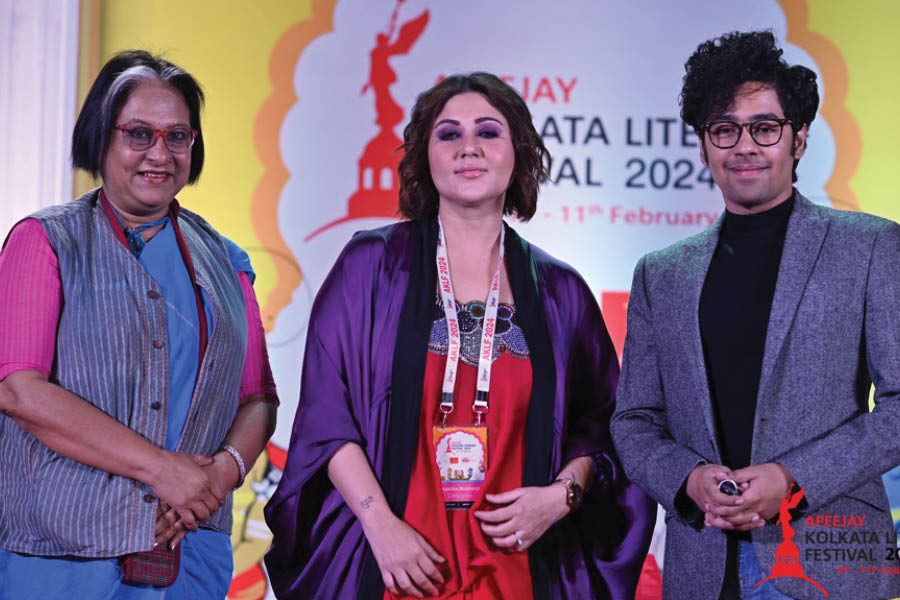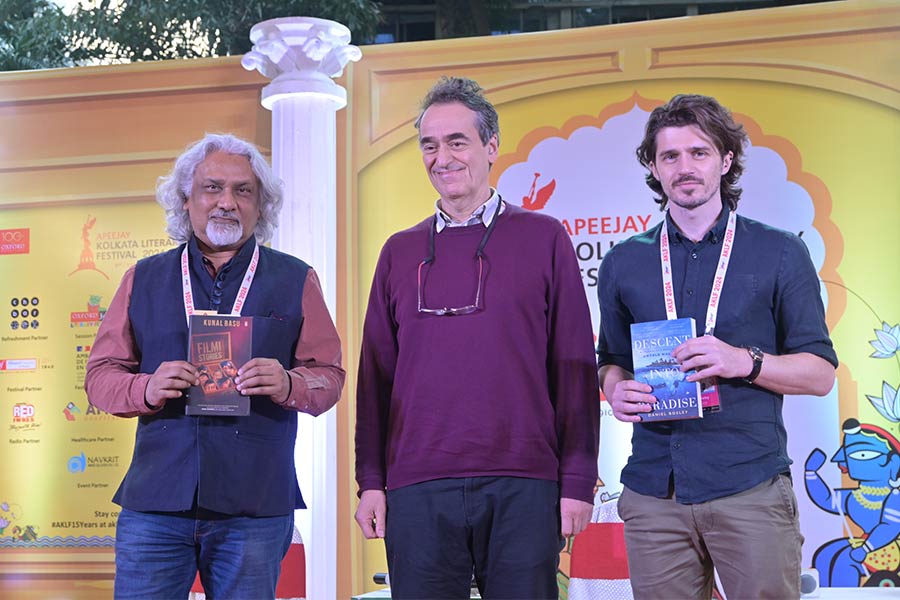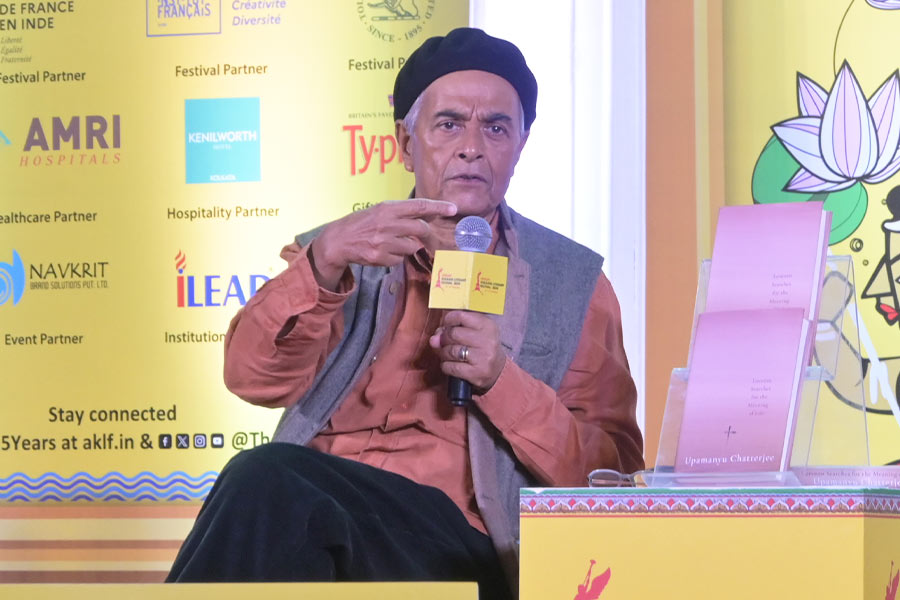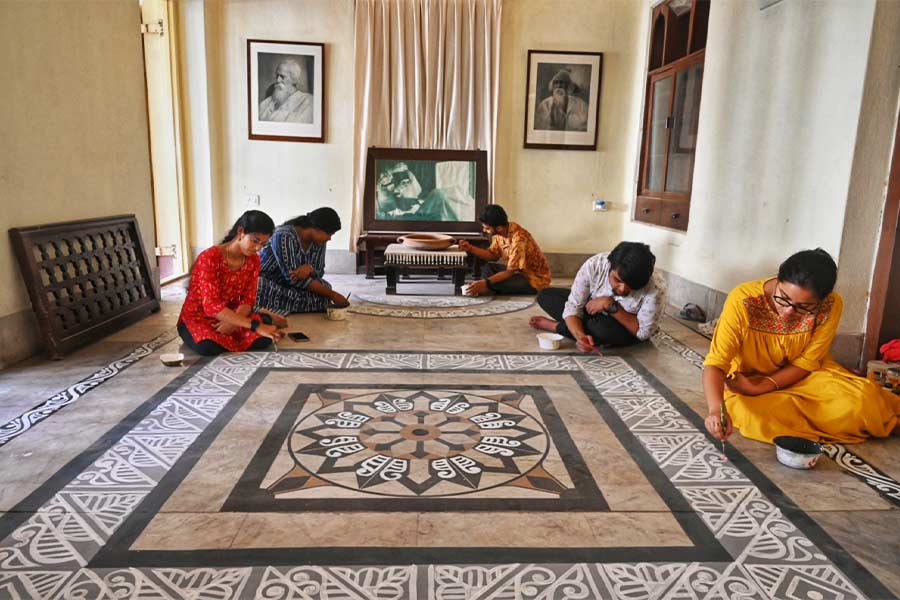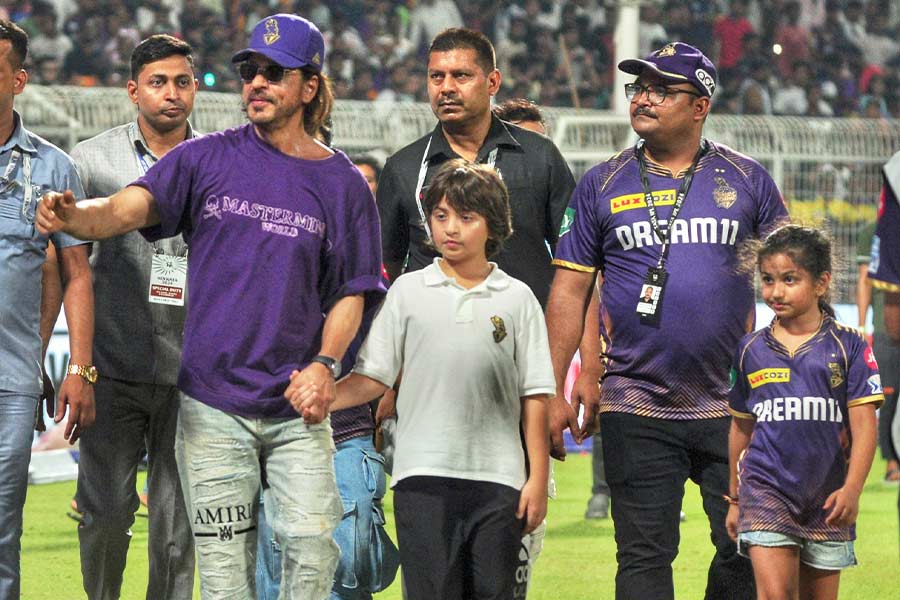Every time a book is adapted for the screen, whether big or small, it sparks a debate about which is better. With the advent of newer media like OTT and audiobooks, adaptations have become more frequent. However, the question remains — does the translation of medium rob the work of its essence?
At the Apeejay Kolkata Literary Festival (AKLF), recently in Kolkata, a panel including actors Swastika Mukherjee and Riddhi Sen, with filmmaker Sudeshna Roy as the moderator, delved deep into this question.
‘Ei, ekta boi dekhbo - is a love language in Bengali’
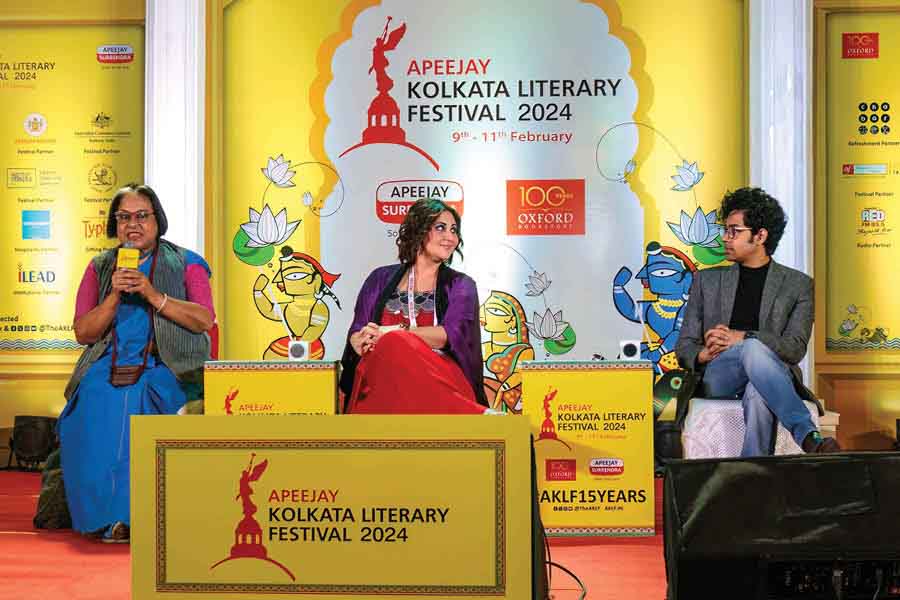
(L-R) Three generations of the Bengali film and television industry united for a thought-provoking discussion on books and its many forms of adaptations
When Sudeshna Roy jokingly mentioned the popular Bengali phrase “Ei, ekta boi dekhbo,” which literally translates to “Let’s watch a book,” the audience burst into laughter, connecting with the sentiment. The phrase stems from the idea of page-to-screen adaptation. Over time, many books have been adapted multiple times on screen, for instance Sarat Chandra Chattopadhyay’s Devdas, which has been adapted 20 times from 1928 to 2019, in several Indian languages.
Swastika Mukherjee’s reflection from her two-decade-long career
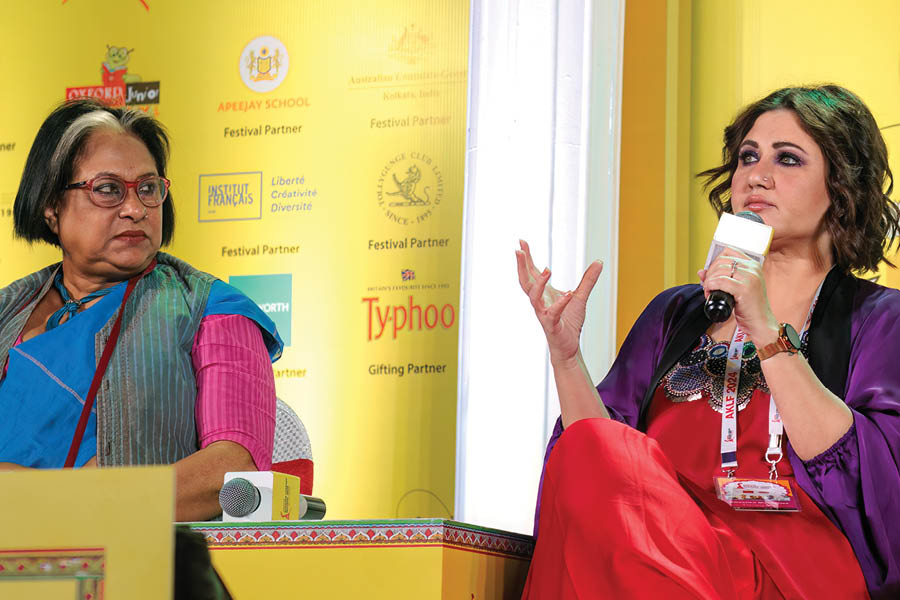
(L-R) While Sudeshna Roy posed important questions, Swastika Mukherjee reflected on them from her own experiences
Swastika, who began her acting career with Bengali TV series, Devdasi, has also appeared in numerous period dramas, like Shahityer Sera Samay. Later in her career, she has also acted in films like Krishnakanter Will, which is originally a book by Bankim Chandra Chattopadhyay. “When you have a book, the script is not your Bible. The book is your Bible. And they are usually books that have been read by many people,” said Swastika, analysing the pros and cons of celluloid adaptations of books.
The actress stressed on the responsibility that comes with translating or adapting works, highlighting the need to stay true to the original book and adhering to the way the story has been conceived by the author. “I, too, have to stick to the way the character has been approached in the book. I can offer my inputs, but that can be far-fetched,” explained Swastika.
The contrast between the reader’s imagination and a cinematic adaptation always carries the risk of disappointment — it could be because of the casting or the treatment of the narration. “There is always this risk that filmmakers have to take and actors have to go through,” said Swastika.
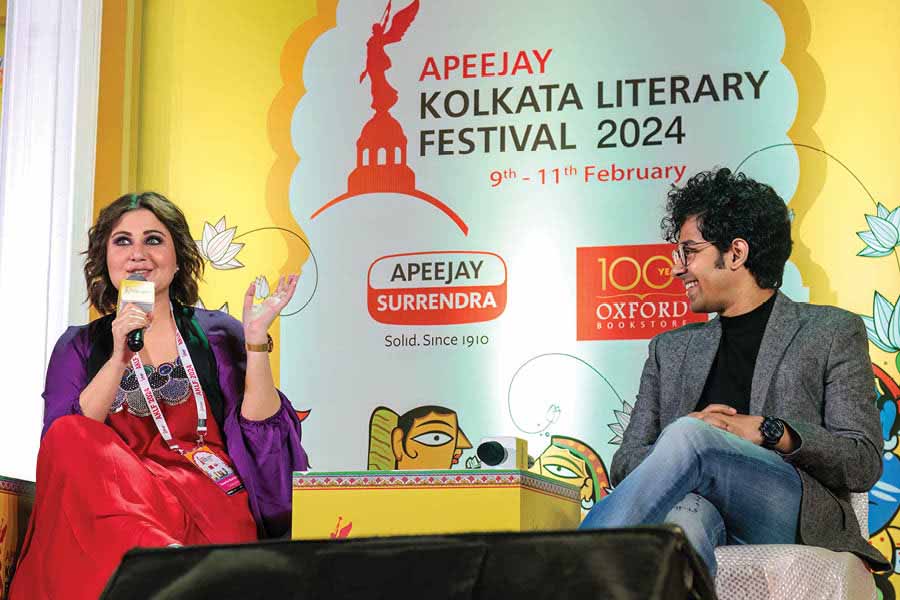
Swastika’s relatable anecdotes and sense of humour were a hit among her colleagues and the audience
Today, a book can be narrated in more than one way. The actress has recently stepped into the domain of audiobooks, portraying eight characters in Mahasweta Devi’s Satya Asatya (translated by Anjum Katyal and titled Truth Untruth, for Seagull Books). Taking a book to an audio avatar, the veteran actress used her experience in tonality and pitch to present the characters in a non-visual medium. “For the artistes, the opportunities have really opened up. There is a lot more that we can do in the digital world” said Swastika, on how books indeed can take multiple avatars.
‘A Gen Z performer delves deep into the wide gamut of performing arts’
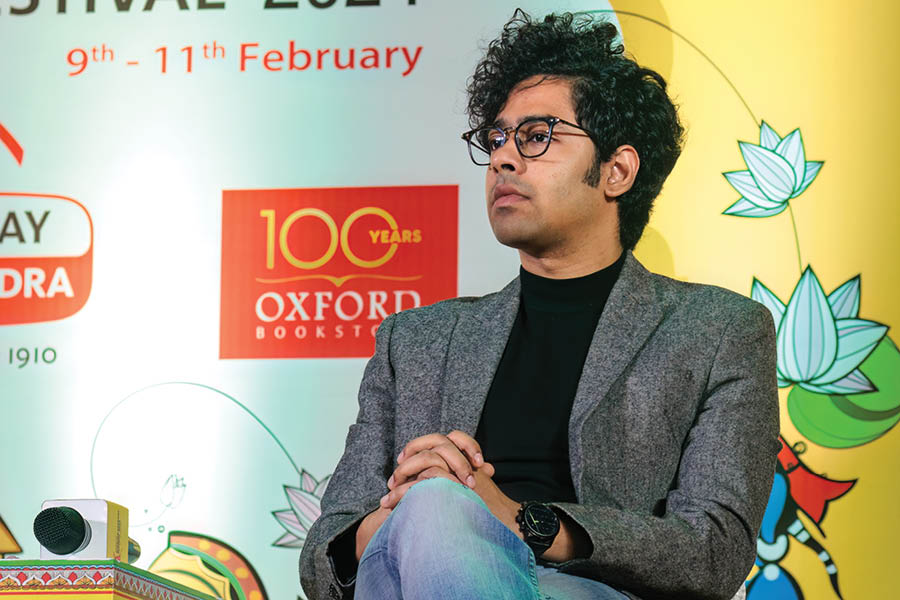
Riddhi spoke about the volume of adapted works by eminent film personalities like Satyajit Ray, Mrinal Sen, Ritwick Ghatak, Tapan Sinha in their time
Riddhi Sen, an active member of the theatre group Swapnasandhani, has recently performed in the stage adaptation of Shakespeare’s Hamlet. He, along with his father and noted playwright and actor Kaushik Sen, worked in several such productions that required adapting the script for the screen.
Not denying the contrast of opinion between the author and the filmmaker, or the apprehension in the minds of the reader and audience in the case of popular works, Riddhi spoke about the volume of adapted works by eminent film personalities like Satyajit Ray, Mrinal Sen, Ritwick Ghatak, Tapan Sinha in their time. “The way Charulata was developed from Tagore’s Noshtoneer by Ray — there has been debate on the right and wrong of it,” said Riddhi.
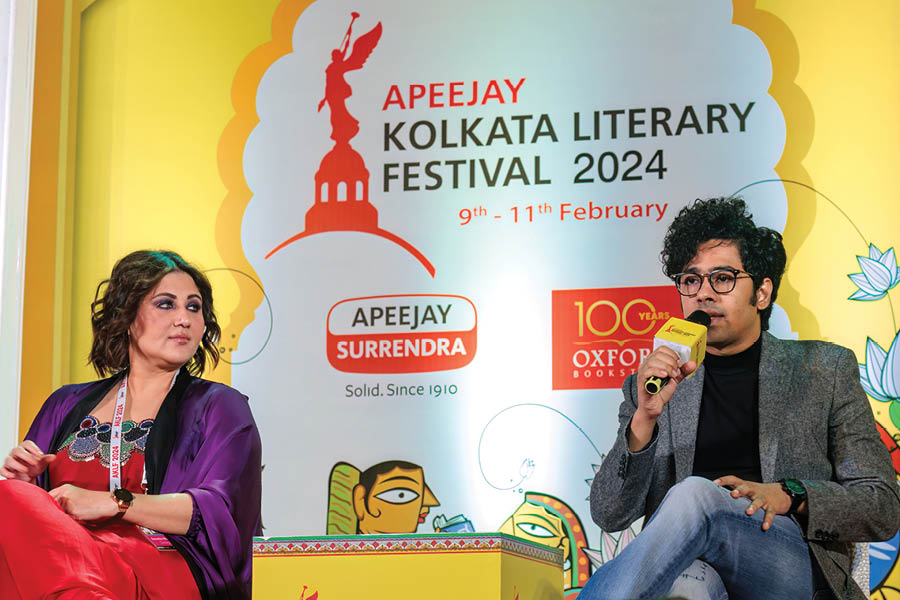
Swastika listened keenly to the viewpoint of an actor carrying forward the baton
“There is a rising conflict between our generation and our preceding generation,” said Riddhi, speaking about watching Sherlock on BBC versus a new web series that adheres to the components of the original book, but also offers a newer treatment. Sharing a first-hand experience from his own career, Riddhi shared the drastic feedback he and the cast of Feluda received, a web series that was aired on Addatimes in 2017, featuring stories like Ghurghutiyar Ghotona, Golokdham Rahasya and more. The audience could not accept a new cast despite director and actor Parambrata’s own association with the franchise as Topshe earlier. “There is nothing called best in art. Art is a relative medium,” reflected Riddhi.
Riddhi also touched upon how we tend to develop a personal relationship with fictional literary characters and the bias and tendency to do a comparative analysis between the book and onscreen representation. “The audiovisual medium is intrinsically different from literature. The grammar is different and there is no clash between them. Literature is the world’s oldest art form,” said Riddhi. “Cinema is a situational medium, where a narrative can also not be there,” further opined the actor, when talking about the tendency of “telling stories” through filmmaking and the necessity of adapting a story into a screenplay by making necessary modifications in the visual language.
Anecdotes that leave behind a lasting impression
During the panel discussion, whether discussing Ray’s work or Hollywood classics, Swastika and Riddhi shared anecdotes that left a lasting impression, prompting us to revisit and ponder:
1. Sudeshna, Swastika and Riddhi referred to how several Feluda and Jatayu sketches by Satyajit Ray gave a visual impression of Soumitra Chattopadhyay and Santosh Dutta respectively
2. Riddhi spoke about the dastanago or soothsayers, a significant part of the Anglo-Saxon era of literature, and a primitive version of audio books
3. Riddhi also highlighted the birth of cinema by the Lumiere Brothers in Paris, where they showcased the first glimpse of a train arriving at a station. The audience’s first response was fear, mistaking the train for reality.


